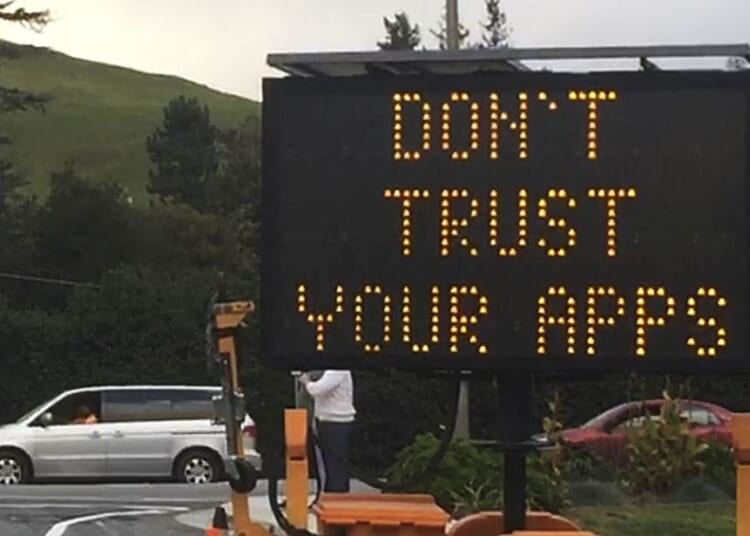Joe Biden may not have the first clue what to do about the border crisis, inflation, crime, or the war in Ukraine, but he’s still determined to be a problem-solver, dagnabbit. So what is the next crisis that the Biden administration plans to save us from? Many locations around the country have been installing programmable electronic highway signs to provide information or warnings to drivers. Sometimes, the people in charge of those signs decide to have a little fun and display some type of joke or pun to give people a chuckle while they’re on the road. You’ve probably seen plenty of them. But those might prove to be a distraction to some drivers or confuse them, at least according to the White House. So they’re going to be banned in accordance with new rules being issued by the Federal Highway Administration by 2026. Before you ask, yes, this is a real story. I couldn’t make this stuff up if I tried. (Associated Press)
It’s no joke. Humorous and quirky messages on electronic signs will soon disappear from highways and freeways across the country.
The U.S. Federal Highway Administration has given states two years to implement all the changes outlined in its new 1,100-page manual released last month, including rules that spells out how signs and other traffic control devices are regulated.
Administration officials said overhead electronic signs with obscure meanings, references to pop culture or those intended to be funny will be banned in 2026 because they can be misunderstood or distracting to drivers.
The new FHA rules say that such messages should always be “simple, direct, brief, legible and clear.” Warnings should be limited to things such as weather conditions, traffic delays, or scolding messages about the dangers of drunk driving or texting while driving. No more humor for you, Sonny!
The FHA falls under the Department of Transportation. Should we be suspecting that Pete Buttigieg is behind this in some fashion? He’s always come off as a bit of a humorless scold to me, so it wouldn’t be terribly surprising. But no matter who cooked up this scheme, they should really consider walking it back a bit. Is this really the most pressing problem in the transportation sector requiring Washington’s attention? And how many drivers do they think are actually a risk of becoming confused over a joke? If you run your car off the road because you saw a sign warning of zombies ahead, perhaps you shouldn’t have been driving to begin with.
Besides, some of the funny signs we come across still carry useful information and get people thinking about things related to safety. One sign recently instructed drivers, “Don’t Drive Star Spangled Hammered” over the 4th of July. Is there anyone who seriously can’t figure out what that means? Another one this winter read, “Santa Sees You When You’re Speeding.” That was just a humorous way to remind people to keep their speed down around Christmas time. Are all of these signs going to be done away with under this ban?
Of course, not all jokes are funny to everyone. I could have personally done without the one that read, “Bend your gender, not your fender.” But I’m not offended and I wouldn’t call for it to be banned. Another one warned people against using their cellphones while driving by calling them “bobbleheads.” It wasn’t exactly complimentary, but if you’re really going to be offended by that you probably need to lighten up a bit.
Of course, when people begin editing highway messages in this fashion, it’s always possible that someone will go too far. If a sign is giving out patently false or even potentially dangerous information about natural disasters that are not taking place, those messages need to come down and the responsible person should be held accountable. But that doesn’t mean we need to ban either the rest of the messages or the signs themselves altogether. A little bit of common sense and some reasonable restrictions against pornography, hate speech, or false information should have been sufficient without some complete, heavy-handed government ban on having a sense of humor.

